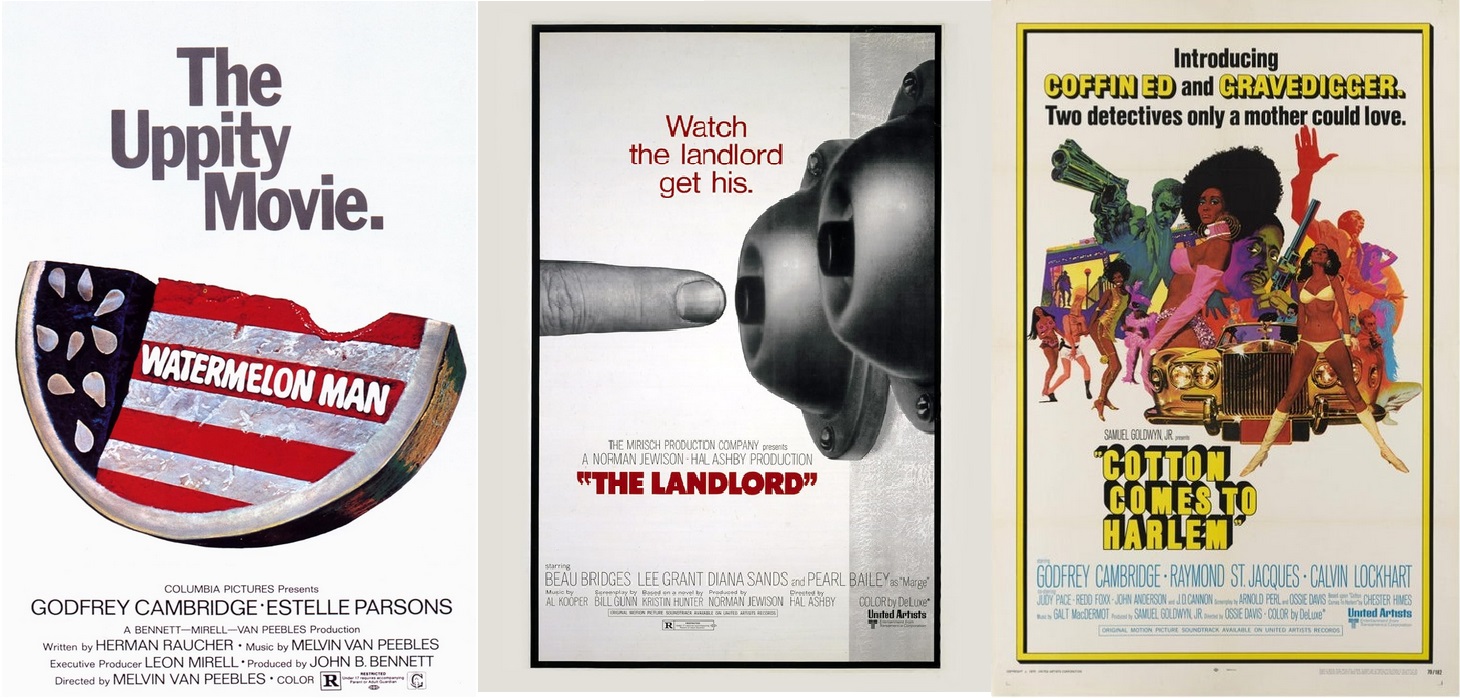
by Tam Phan (Secret Asian Man)
There’s a volcano that’s ready to erupt on the silver screens, so prepare yourselves for a blast of truth, fury, and funk that has no patience for politeness. These three films, Watermelon Man, The Landlord, and Cotton Comes to Harlem, take a swing at the beast that is American racism as they stumble in their own strange ways trying to wrap their arms around it. These films attempt to not let their audiences off easy as they slap them across the face, daring white America to feel what it’s like to be on the wrong end of the stick. Whether you’re a white boy having your spiritual awakening in a Black neighborhood or a white man literally waking up Black, these films don’t just entertain. They challenge and provoke you with some honesty and a loud Black voice that is no longer asking to be heard.


![[June 14, 1970] Talkin' Loud, Swingin' Soft (June 1970 <i>Watermelon Man, The Landlord, and Cotton Comes to Harlem</i>)](https://galacticjourney.org/wp-content/uploads/2025/06/700614movies-672x372.jpg)